Lucien King, Guest Curator of the Barbican's GameOn Exhibition
Interview - Rockstar veteran Lucien King talks about his work on the GameOn exhibition at the Barbican
It's 40 years since the creation of the very first video game - Space War - and to celebrate this anniversary the Barbican gallery in London is opening its doors to the rabble for an exhibition on the gaming industry's past, present and future. We spoke to guest curator Lucien King to find out what visitors can look forward to seeing when the show opens in May.

Bits & Pieces
"We all grew up with videogames as just (an expensive) part of our daily lives", thirty-something Lucien told us. "In Japan they call our generation the Bit Generation (if they're being polite!): for us bits are just part of the natural environment." His active involvement in the gaming industry began six years ago, when his girlfriend introduced him to a certain Sam Houser. "We worked together at BMG Interactive International in London, establishing a games publisher within the music group that brought you Take That, Whitney and Kylie. This went well for us at International, but not so great in the USA, so we merged with another young company called Take 2 and set up Rockstar Games in New York. Unlike many of my buddies at the company, I didn't want to move to NYC, so I was looking at what I could do whilst waiting for the right time to hopefully open a Rockstar London operation. Take 2 HQ in Europe is based in Windsor, which is nice and green and near the Queen, but perhaps isn't the perfect place to attract the kind of young talent we would need." And so the idea of putting together a major exhibition about video games began to take form. "Like most good ideas, it's not entirely out of the blue", Lucien admitted. "Since 1989 people like Rochelle Slovin at the American Museum of the Moving Image in Queens, New York, and others in Japan and elsewhere have been interested in looking at videogames as interesting forms of human expression. I see this show as building on their earlier interest and work. Back then they were pioneers really - reflecting a nascent medium that smart folk already realised was going to have enormous impact around the world. Us younger kids, we just grew up with games and for us therefore, as we got older and gained more access, we wanted to reflect on what was, and still is, important and interesting to us: dance music, hiphop, videogames, xgames, grafitti, all the good stuff."
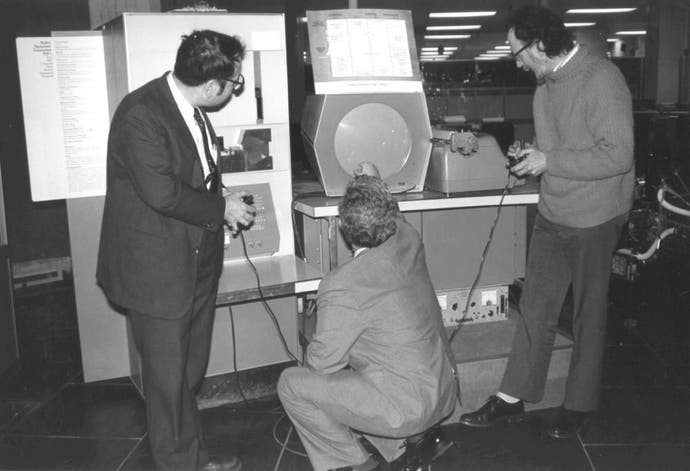
Plundering The Public Purse
"Then one day in 1998 I happened to be walking along in sunny France with a fellow called Mark Jones. He now runs the Victoria and Albert Museum in London, but four years ago he was director of the National Museums of Scotland. It didn't take much (a few whiskies and the promise of a holiday in Ibiza) to persuade him that videogames were an ideal subject for a major show at the National Museum in Edinburgh." "Trying to do a proper job of looking at 40 years of international culture and history would cost a lot of money, but we soon found a great partner in the Barbican Art Gallery, and together we have developed this show. We saw the chance to stage an ambitious look at an everday part of many people's lives, a part which often only got taken seriously in the specialist games press and websites. The interest is there amongst people to find out more about games and where they came from, and how they got to where they are today, and where they may be taking us in the next few years. Major cultural institutions had just never tried to put on such a show." "Shows like E3 and ECTS and Milia and the Tokyo Game Show are ok for some kinds of business, but don't really do a good enough job of putting games in a public context. I recognised that gaming culture and the people who made it all up would be interested in a show which tried to do more than sell games. And I was able to persuade some switched-on gatekeepers to the public purse to give up enough readies to afford to attempt a show which looked at the world wide game scene in an unprecedented 1500 square metres of public space."
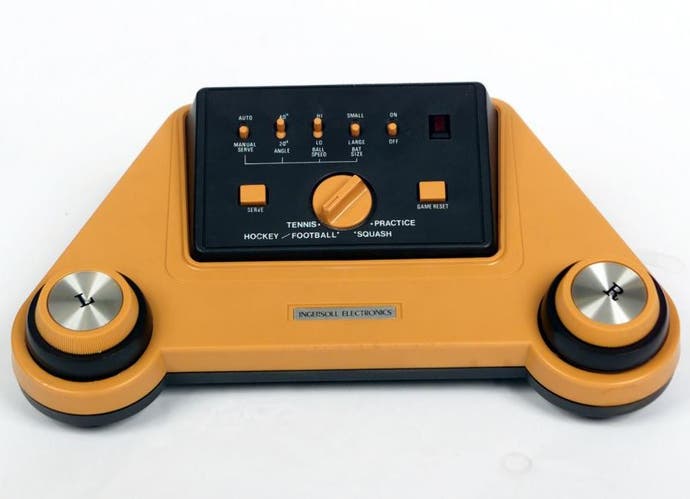
Play
The next step was to find enough interesting exhibits to fill that space, and it's something that has taken four years of work from Lucien and his co-conspirators. "Right from the start the content of this exhibition has been based not on the ideas and work of a traditional curator or two, but on the ideas of as many folk as possible who make games, play games and love or even hate games." "We developed an Object List right from the start, and this list grew to reflect the many conversations I was having with individuals who have been doing the job of museums for years - collecting, looking after and learning about games and their histories. Developers and publishers and hardware manufacturers have all been, by and large, very helpful, and trade and industry bodies have seen the importance of an independent show like this. As the list grew we assembled a team at the Barbican and in Scotland to help develop the show and track down the materials we would need to make it work in a gallery or museum environment. We didn't just want banks of screens - we wanted drawings, artefacts, old and new games, as much stuff as we could get a hold of to borrow for the show and the tour." Part of this approach is that GameOn is very much a hands-on exhibition, and many of the exhibits will be fully playable. "All the classic arcade machines on display (around 25) will be on freeplay, so please wash your hands and treat them with the respect such Old Masters deserve. There will also be a game emulation station showing the other arcade games we wanted but didn't have space for. There will be a comprehensive collection of machines and games that tell the international 30 year console story; many of these will be playable. And there will be advertised special interest events throughout the duration of the show (five months each in London and Edinburgh) where particular subjects will be explored in greater detail. So some of the stuff which is too precious and temperamental to have on all the time will be playable then."
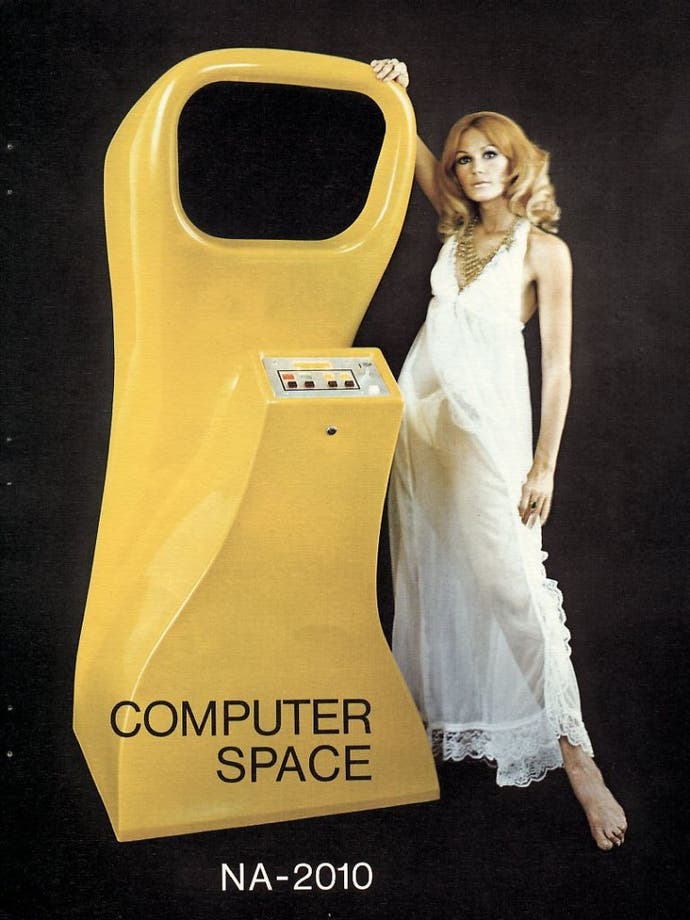
People Watching
"This show is about sharing a passion for play", Lucien added. "People will be encouraged to play, to compete, to exchange ideas and behave like your regular hardcore game fanatic if they really want to." "I hope the people who come to Game On will reflect the make-up of gaming society as a whole. Games have been around forever, electronic games have been around long enough for the whole population to be aware of them. If you are 60 now, you were 20 when games were born. If you are any younger they have just always been around. I would reckon therefore that you will be seeing families, grandparents with their grandchildren, school and college groups, tourists, gangs of young boys and girls, bevvied up groups of lads - all of them making a racket and not being like your traditional gallery goers, who often seem so very contemplative and hushed, as if frightened of speaking too loudly and disturbing the often sanctimonious peace to be found in so many gallery and museum spaces. But let's see who comes down - they'll be as much a part of the show as the objects and games themselves." Amongst the actual exhibits, one of Lucien's personal favourites is a rather obscure choice. "I do think the Russian Cybiko is pretty cool, and helps point one way into the future: communication games", Lucien told us. For those of you who are none the wiser, Cybiko is a wireless handheld system which combines gaming, instant messaging and e-mail in a single box. Although it's not very well known, it's sold half a million units worldwide over the last few years and has a cult following on the internet. "I think a big show like this needs many highlights though, and I wouldn't like to say what other people will find great within the show - it will depend on what you are interested in. For me, I think it is the overall approach taken to profile the individuals and teams who are the drivers of the imagination, creativity, hard work and ingenuity which go into making and marketing games. Making games can boggle the mind, so that whole side of who is behind the games we play is important to us."
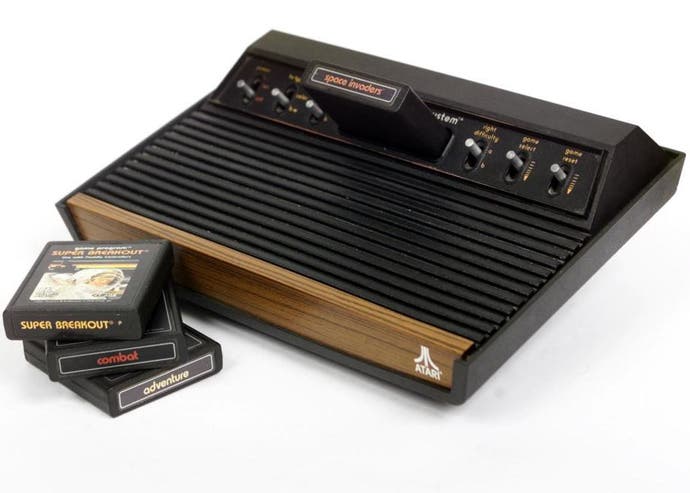
Art
GameOn will also feature some more rather traditional items, including several new pieces of art specially comissioned for the exhibition. "The art commissions are going to be like Easter Eggs", is all Lucien would tell us when we probed him for more details. "You will have to wait and see what they are like, but we hope they will reflect the influence of games on some 10 contemporary British Artists. There will be artists represented who work with film, costumes, architectural design and grafitti amongst others. I am looking forward to seeing what they're like myself." All of which just goes to show what a big impact the gaming industry has had on popular culture, particularly in recent years. As Lucien puts it, "electronic games crashed into the world, made a right nuisance of themselves by being so damn fun, and are here to stay as just part and parcel of a healthy balanced diet of life in the often unhealthy and dangerous world we persist in making for ourselves." "What influence have videogames had? These are big questions, with many answers. We try to provide some pointers in the show and the book and the accompanying nationwide education programs. Even now there are people who don't see games as important or valuable, but I guess the fact that Europe's biggest art centre and the National Museum of Scotland both take games seriously might suggest that the infuence of games is at last being realised by the bastions of established culture. A sure sign that we have to watch out, and make sure the practical influence of games becomes better for the world and not just better for a few in the games industry."
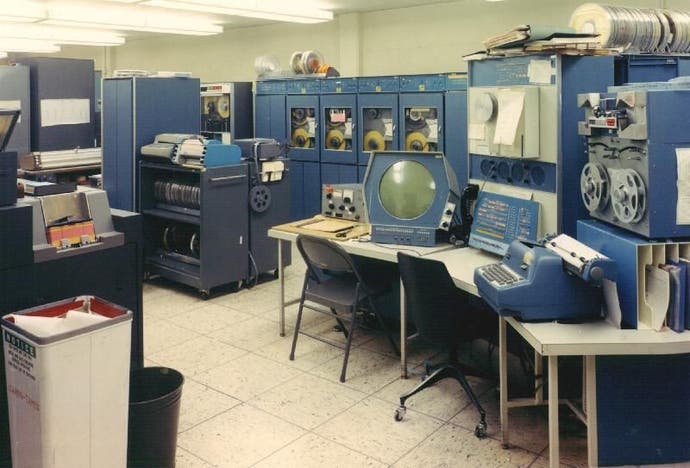
Join The Game
GameOn gets underway at the Barbican in May, representing "four years of information gathering, bridge building, item search and rescue" by its curators and their assistants. If London is too far to travel for you though, don't fear - the show will be going on a world tour after it has visited the Barbican and Edinburgh. "I'd say a couple more places in Europe like Scandinavia and France. Then the USA, places like Brooklyn, Chicago and Pittsburg perhaps. Then Tokyo. Nothing in this world is certain 'til it is certain, but these are strong possibilities, shall we say." The show will also continue to develop as it travels, "like good game software - hopefully becoming even more comprehensive and able to change to reflect the times". And now's your chance to be a part of this! Lucien told us that he was "very interested in working with you and your readers on a piece of popular research which could form part of the exhibition at some stage". "I would love to develop a record of all the references to videogames found in literature. That may sound like a mammoth research task, but in fact I reckon one could go a long way by asking your people to mail in examples of where games have cropped up in books. I know ten or eleven examples off the top of my head - 'The Beach' by Alex Garland, some William Gibson books, some Ian Banks books, Dave Haslam's 'Adventures on the Wheels of Steel', for example." So what can you do to help add to this list? Simply post a message in this thread with the title of the book, the page reference, the author and your own name. "We could build that information into a document that grew as the exhibition went on round the world, and that could eventually be shown as part of the show." Yes, you too could be a part of gaming history.
-

